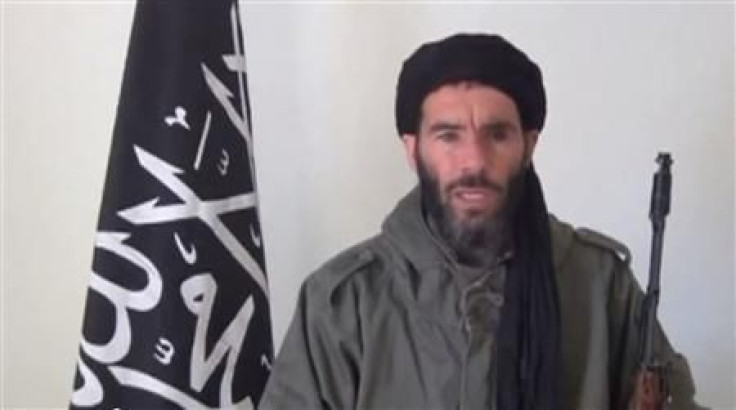Islamic ‘Marlboro Man’: The One-Eyed Jihadist Who Quarreled With Al-Qaeda And Seized An Algerian Gas Field

The man behind the brazen and chaotic seizure of an Algerian gas field (an act that has included the kidnapping and killing of an unknown number of foreign workers) is reportedly a man named Mokhtar Belmokhtar, who was formerly a senior commander of al-Qaeda in the Islamic Maghreb (AQIM).
The one-eyed Belmokhtar has a fascinating back-story -- for one thing, he shouldn’t even be alive. Last June, local media reported that he had been killed in combat during a gunfight in Gao, Mali, between Tuareg rebels and government forces.
For another, he apparently does not get along with other Islamic groups in West Africa and the Sahara.
The Guardian newspaper reported that the 41-year-old Belmokhtar was passed over for senior positions within AQIM, suggesting he may have staged this daring raid at the Ansema gas facility in eastern Algeria to distinguish himself from other militant groups in the region.
Born in Algeria, Belmokhtar is also known as ‘The Uncatchable,’ and, more entertainingly, "Mister Marlboro," since he spent part of his early years smuggling cigarettes to earn money. He has also been linked to arms, drugs trading and kidnapping.
Following the killing of Palestinian Islamist Abdullah Yusuf Azzam, at the age of 19, a vengeful Belmokhtar journeyed to Afghanistan, reportedly to gain combat experience from al-Qaeda fighters.
"While [in Afghanistan], Belmokhtar claims … to have made connections with jihadis from around the world," said the U.S.-based Jamestown Foundation, a Washington, D.C.-based institute for research and analysis.
"Moreover, Belmokhtar claims to have been to battlefronts 'from Qardiz to Jalalabad to Kabul.’ … With [twenty-one] years of involvement in jihadism, Belmokhtar has continually eluded government efforts to marginalize him, while becoming a gravitational force in the North African arena and at times a key node in al-Qaeda’s international network.”
He returned to his native Algeria the following year in 1993, just in time for the deadly civil war between the state authorities and Islamists that claimed hundreds of thousands of lives.
Originally a member of the fundamentalist Groupe Islamique Armée (GIA), Belmokhtar later co-founded a militant unit called the Groupe Salafiste Pour la Prédication et le Combat (GSPC), which eventually metamorphosed into AQIM.
"He is one of the best known warlords of the Sahara," Stephen Ellis of the African Studies Centre in Leiden in Holland told Reuters.
Now leading his own groups called Khaled Abu al-Abbas Brigade and the "Signed-in-Blood Battalion," Belmokhtar ostensibly attacked the Ansema gas field to protest France’s military intervention in Mali – but the Guardian suggests that may only be a cover story. Belmokhtar’s relationship with AQIM’s top brass is reportedly very strained. Indeed, last October, he was apparently removed from a command position in northern Mali by the founder of AQIM, Abdelmalek Droukdel.
Droukdel himself passed him in seniority a decade earlier during the formation of the GSPC.
During his turbulent tenure in AQIM, he reportedly squabbled with his peers over the proper way to conduct kidnappings -- while other warlords expressed no hesitation in killing captives, Belmokhtar apparently favored negotiations. He also fell afoul of his fellow AQIM gangsters by demanding a larger share of the multimillion-dollar ransoms that were sometimes paid out during abductions.
It remains unclear if the peripatetic Belmokhtar is still working on behalf of AQIM, or if he is a "free agent" terrorist.
Noting that Belmokhtar has played a major role in Algerian jihad activities for the past 20 years, Jamestown noted his future is subject to much speculation (assuming he survives the current imbroglio at the gas facility).
“Belmokhtar’s ongoing involvement in weapons trafficking and … hostage crises indicates Belmokhtar is committed to maintaining his current capacity in the Sahara and Sahel regions,” the group stated.
“As his Tuareg tribal connections appear to remain warm and he reportedly maintains allies in [Mali], Belmokhtar appears to have successfully woven himself into the fabric of the region.”
© Copyright IBTimes 2024. All rights reserved.











